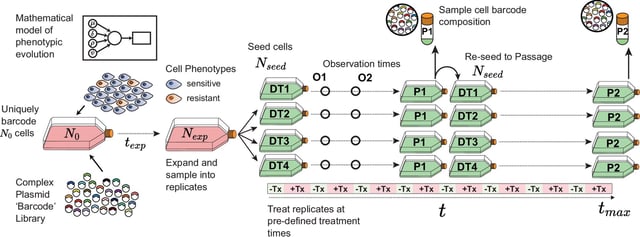Overview
- The tool, known as EIRAs (Evolutionary Informed Resistance Assays), uses genetic barcoding and quantitative models to distinguish between resistance driven by rare mutations and non-genetic mechanisms
- The study published in Nature Communications was led by teams at the Institute of Cancer Research, London, and Queen Mary University of London
- Bowel cancer is the fourth most common cancer in the UK and has relied on largely unchanged chemotherapy regimens for nearly 50 years, making drug resistance a critical barrier
- Researchers are seeking commercial partners to advance EIRAs development and have already begun exploring its use in ovarian and breast cancer therapies
- By forecasting resistance pathways, EIRAs could inform personalized drug design and enable clinicians to adjust dosing strategies to prolong treatment efficacy
